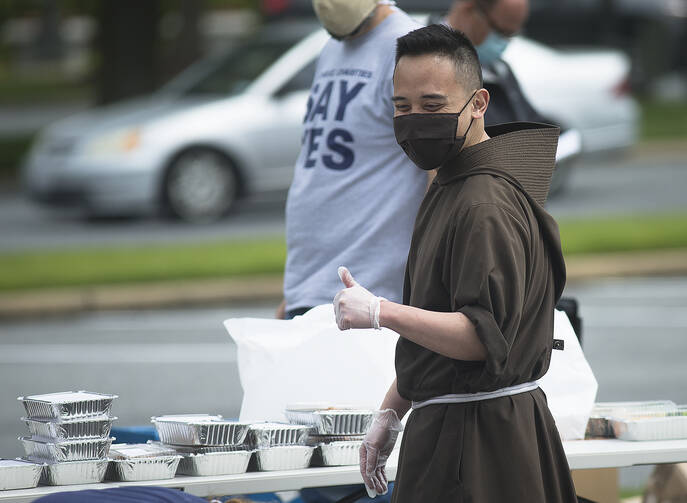As we all grapple with the Covid-19 pandemic both here in the United States and around the world, we have seen extra emphasis on the contributions of people who make our day-to-day lives possible. Health care workers, grocery workers, farmworkers, delivery drivers, public transit workers and other “essential workers,” many of them immigrants, are doing everything they can to make our lives better and safer while trying to earn a fair share of the American Dream.
At hospitals all around the country, including some of the hardest-hit areas, you will find Deferred Action for Childhood Arrivals recipients (Dreamers) among the employees, as well as undocumented immigrants and others who are willing to put their health in jeopardy to feed their families and save others. According to the bipartisan research group New American Economy, there are more than 62,000 DACA-eligible workers in the health care industry and another 280,000 undocumented immigrants in the same field. With personnel shortages in health care, we need these individuals now more than ever.
“Essential workers,” many of them immigrants, are doing everything they can to make our lives better and safer while trying to earn a fair share of the American Dream.
Paradoxically, these frontline workers, deemed “essential” in the struggle to keep us safe against the Covid-19 virus, are often not acknowledged as “essential” enough to remain in the United States. I would argue that immigrants are not only essential to our economy but also to our schools, houses of worship, our communities and our common good. As we show our extreme gratitude for the many essential immigrant workers going forward, we must find a path to citizenship for those who are undocumented or those with temporary status, such as Dreamers and Temporary Protected Status holders.
Through my years as a priest and also in my work as the director of the Catholic Charities Spanish Catholic Center for the Archdiocese of Washington, D.C., I have had the privilege to work closely with many of these frontline workers. In my priestly ministry, I have gotten to know them and have seen the sacrifices they make to build a life here, sometimes separated from their families who remain in their native countries, and their hard work to ensure their children are educated to give them a better life. I have also seen the hardships they have encountered, including the inability to access adequate health care or meaningful health and safety protections at work.
I am pleased, as chairman of the Committee on Migration at the United States Conference of Catholic Bishops, that the Migration and Refugee Services department is engaged in a nationwide immigration awareness campaign with other faith-based organizations, civil rights organizations and immigration groups. The #AllofUS campaign, of which the M.R.S. is a founding member, launched April 29. The campaign hopes to demonstrate that as the ongoing fallout of the crisis caused by the Covid-19 virus continues, Americans—regardless of where we were born—are standing shoulder to shoulder, showing that all of our contributions to the economy and society are ever more indispensable.
These frontline workers, deemed “essential” in the struggle to keep us safe against the Covid-19 virus, are often not acknowledged as “essential” enough to remain in the United States.
All people, no matter where they were born, where they work, or the color of their skin, are children of God. The Catholic Church teaches that each person is created in the image and likeness of God and that we must uphold the inherent dignity of each person. As a society, we must remain consistent in our openness and treatment of all Americans, regardless of whether they were born in the United States or immigrated here.
This is a moment when we have an opportunity to show who we are as a nation and the moral commitments that we affirm as a people. As we stare into the depths of some uncertain times ahead, now is the time to show what has made the United States the bastion of hope for immigrants and refugees from all around the world. In the end, it truly will take all of us, together, to overcome the impact of the Covid-19 virus.










